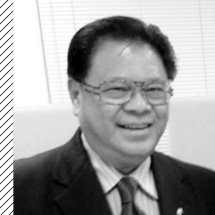By Perry Diaz
As seen on the March 2020 issue of Philippine Tribune
Since Rodrigo Duterte took over the presidency of the Philippines, the influx of Chinese nationals has increased dramatically. Gambling and prostitution have become a huge problem. Most of the Chinese nationals who have come to the Philippines are involved in a new gaming industry called Philippine Offshore Gaming Operations (Pogos). Hundreds of Pogos are now in operation employing hundreds of thousands of Chinese from the mainland. Many have entered the country illegally. Pogos employ Chinese nationals because most of their clients are from mainland China.
Because most Chinese workers are male, they need women to satisfy their sexual appetites. Thousands of female Chinese are now in the Philippines, to cater to the Chinese male employees in Pogos and other industries.
But Chinese prostitutes in the Philippines cater exclusively to Chinese clients. ABS-CBN reported that about 300 Chinese sex workers and their clients were rounded up by the Philippine National Police (PNP) and National Bureau of Investigation (NBI) in 12 brothels in six cities. The agents believe that all the raided premises were being run by mainland Chinese for Chinese clients. The owners are also Chinese nationals. The managers were jailed for “human trafficking” but the owners live in China. The Chinese young women were sent to shelters, their passports were confiscated, and referred to the immigration bureau.
Crime wave
Many of the sex workers were victims themselves of the illegal gambling trade. They were enticed to come to the Philippines to make money from gambling. If they ran out of money, they borrow from Chinese loan sharks. When they lose money, they turn in their passports and become prostitutes. Brothels are used as karaoke bars with valid permits to operate.
Pogos are supposed to generate income for the Philippines but many Pogos who operate in Manila and other cities are unregistered and pay no taxes. The PNP has already shut down about 200 illegal Pogos.
But Philippine authorities have a hard time tracking Pogos because they disappear fast. The operators will find a broker, lease a place, set up and operate without a permit.
Most of the workers are undocumented aliens, the Immigration Bureau find it hard looking for them. One of the problems is the “visa upon arrival” program. It allows a visitor to get a visa upon arrival at the port of entry. Upon entering the country, the visitor vanishes and ends up working in a Pogo. Current estimates of Chinese workers in the Philippines is placed between 400,000 and 800,000. Many believe there are more. This unabated entry of Chinese nationals contributes to the rising crime rate involving Pogo workers. The government must implement stricter immigration rules, stop issuing Pogo licenses, and crack down on illegal gambling.
China’s concerns
China said its nationals are being targeted by gambling firms, resulting in hundreds of millions of yuan illegally flowing into the Philippines.
Beijing has urged Manila to protect Chinese citizens, which it said were subjected to “modern slavery” after being lured into working illegally in gaming firms. Also, it called for the Philippine government to punish Pogos subjecting Chinese citizens to “modern slavery.”
The Chinese embassy said its nationals had been kidnapped, tortured, and killed after working for Pogos.
Beijing said that it will step up its crackdown on cross-border gambling and online payment platforms that provided technical support for such activities.
China accused the Philippines of luring Chinese citizens into gambling, which resulted in an increase of crimes and social problems in China. But the Chinese who go to Manila as tourists end up converting their visas to working visas, which is a normal procedure under Philippines immigration laws.
When Chinese are in the Philippines, they become difficult to find and overstay their visas.
Chinese ambassador to Manila, Huang Xilin said. “China is ready to crack down on Pogos, it’s the Philippines that’s not ready.” The strongly worded statement from China caught the Duterte administration flat-footed.
Non-convertible 30-day visa
To clamp down on a crime wave blamed on Chinese visitors, the Philippines scrapped a special six-month visa for Chinese travellers. Instead of the six-month “Temporary Visitor ━ Visa Upon Arrival” that could be converted to into a work visa, Chinese nationals will now be eligible for a “non-extendable 30-day visa” that cannot be converted. Under the new rules, applicants will have to submit inbound and outbound flight details and proof of booked accommodation. The visa will still be available on arrival.
Last January 8, 2020, Duterte quoted Chinese Ambassador Huang as saying: “‘If you must do it, do it, because the law is the law. You have the prerogative to do what you want to enforce the law.”
Ban online gambling
In August 2019, China’s foreign ministry spokesman Geng Shuang urged the Philippines to “ban online gambling.” When Duterte met Chinese President Xi Jinping in Beijing, Xi told Duterte that China would “appreciate” a total ban. Xi explained that “gambling is illegal in China.”
Xi’s appeal to Duterte came after the Chinese Embassy in Manila warned that China would investigate crimes related to organized gambling. China vowed to destroy networks of criminal organizations involved in recruiting gamblers from China by overseas casinos and using the internet to open casinos in China.”
On January 13, Duterte got part of the message. He said he would cap the number of Pogos because the Philippines would “not be able to police them all.” But the other half of the message not understood by Duterte is that China wants a “total ban” on Pogos.
As long as Pogos exist in the Philippines, the problem of crime and prostitution associated with Pogos would continue. Indeed, Pogos breed crime and prostitution. Ω
(PerryDiaz@gmail.com)
